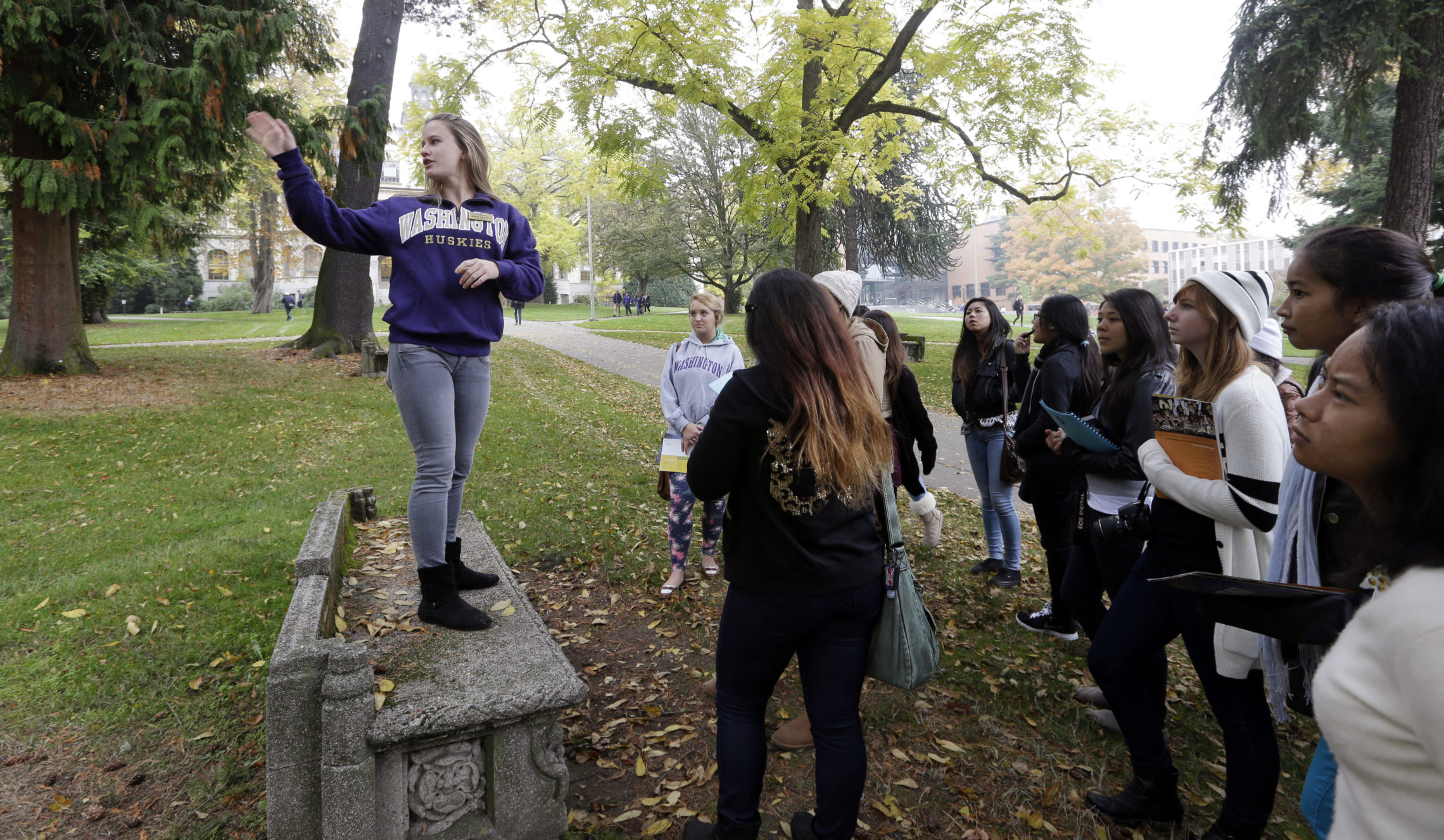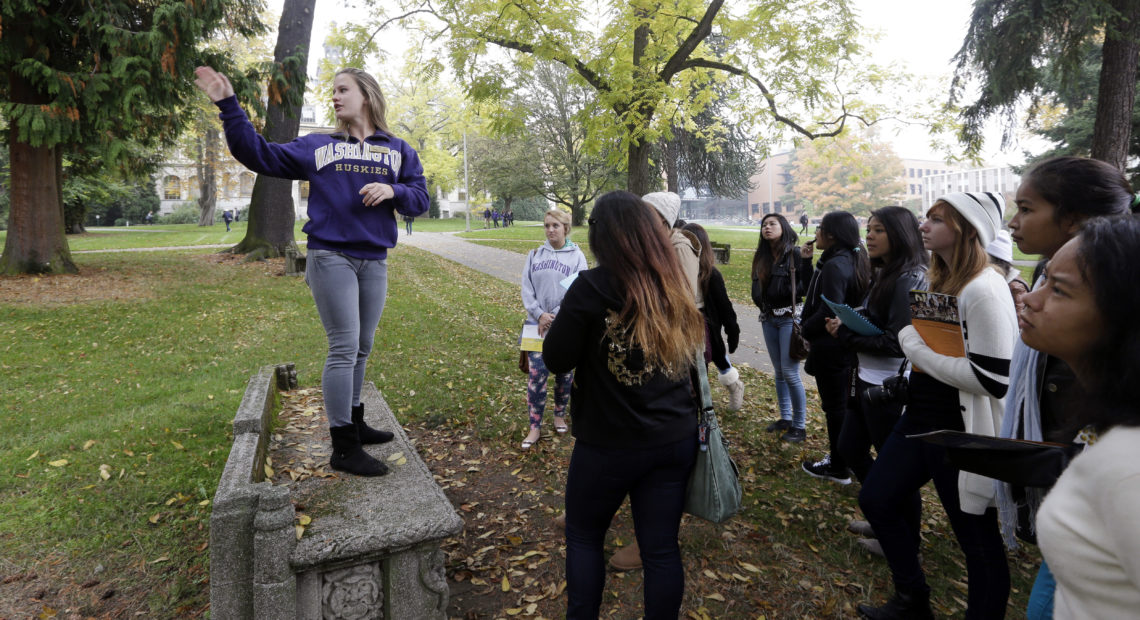
Washington State Lawmakers Want You To Save For College — And They’re Willing To Help
Read On
Drastic increases to the cost of college have discouraged many families from saving for their child’s tuition — or even thinking of it as a possibility. But some state lawmakers think that could change for as little as $100.
That’s how much low-income students could receive under a proposal in the Washington Legislature that would create college savings accounts for kids on public assistance.
The idea is backed by research that suggests families who save for college are more savvy with their finances and have greater expectations for their kids to pursue higher education.
In addition to a savings plan, the bill also would incentivize parents to learn more about finances, build their assets and plan for their child’s economic future.
State Sen. Marko Liias, a Democrat from Lynnwood who is sponsoring the measure, says this could level the playing field in the job market and bridge wealth inequalities among low earners and many communities of color.
“This is one of those measures that will help put regular families first,” Liias said.
The Children’s Education Savings Program builds from existing tuition plans available to parents in Washington. But it goes a step further, making sure aid goes to families who need it the most.
Kindergarteners who already receive free or reduced lunch would be eligible to have their own savings account paid for by the state. Estimates from the Office of the Superintendent of Public Instruction suggest about 80,000 students, many of whom are people of color, would be eligible.
Hundreds of thousands of other students in cities and states across the country are enrolled in similar programs meant to jumpstart conversations on higher education. In fact, the idea of pouring public money into college savings plans has been around for almost a decade, starting in 2011 when San Francisco launched its program.
But Washington’s version is unique, as it targets some of the poorest families in the state. A family of four would be eligible if they make less than $47,000 a year. The proposal would also incentivize applicants to save money of their own, or attend trainings on how to better stay on top of their finances.
The savings account would be tied to the market and accrue interest over time. Supporters of the measure say that likely won’t be enough to cover the cost of tuition, but it could come in handy for filling in gaps left over by financial aid.
Even just thinking about paying for college can be all it takes to motivate someone to get a degree. Researchers from the University of Kansas have found that people who start a savings plan are four times more likely to pursue higher education than someone who has no plan at all.
“We’re trying to make it an expectation not an aspiration,” said Shira Markoff, a policy expert on college savings accounts who helped advise the Washington proposal.
Whether the Legislature will provide funding for the program — $8.6 million over the next two years — remains to be seen.
Democratic lawmakers control the capitol’s three chambers and have flagged higher education aid as an area they want to approve funding for this winter. But they also have said the same for mental health, school safety reform, gun control, and a number of other issues competing for a seat in the state’s budget.
Related Stories:
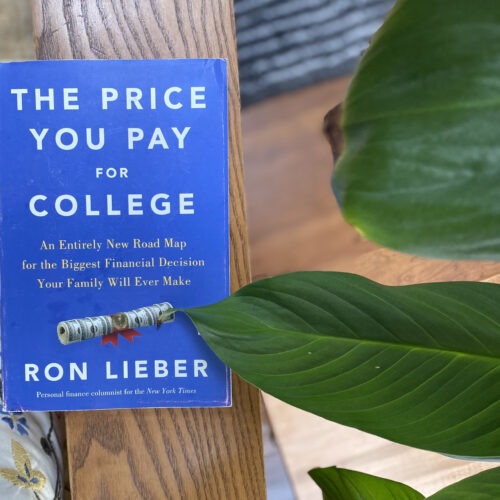
5 Things Every Family Should Know About Paying For College
For many families, paying for college is one of the biggest financial decisions they’ll make. College tuition is the highest it’s ever been — and the financial aid process is anything but clear. American journalist Ron Lieber’s new book, The Price You Pay for College aims to take the black box of college financials and, “turn it lighter and lighter shades of gray.”
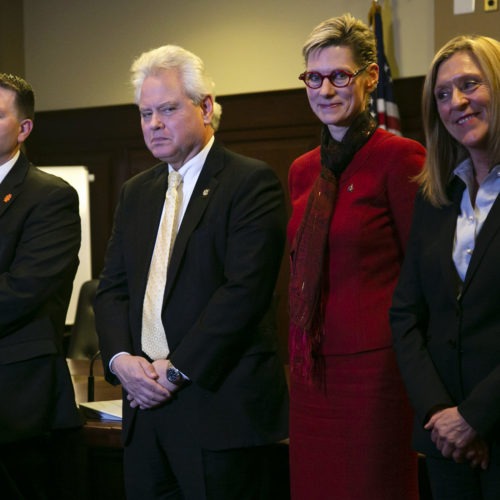
Idaho’s Four-Year Schools Agree On ‘Momentous’ Tuition Freeze
For the first time in at least four decades, Idaho is freezing college and university tuition. The one-year freeze will go into effect next school year — and it covers in-state undergraduate students at Idaho’s four-year institutions.
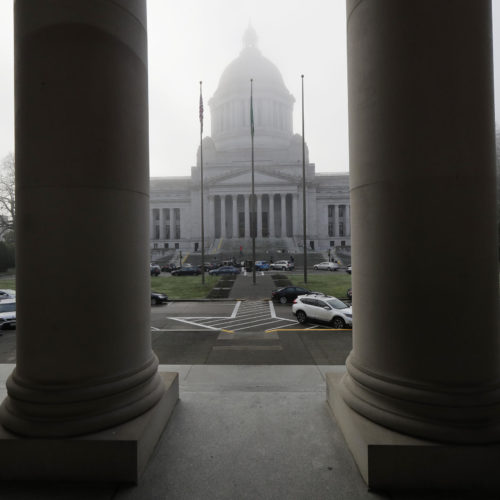
Washington State Lawmakers Want To Save Seat At Budget Table For Free College
The question hanging over the Washington state Legislature this winter isn’t so much what laws will pass, but how they’ll be funded.

